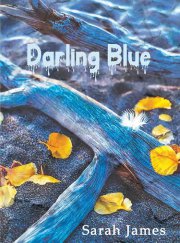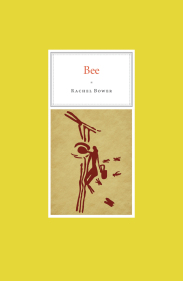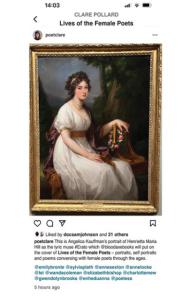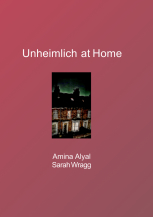
2014
DECEMBER ARCHIVE
Edilson Afonso Ferreira, Anne-Marie Fyfe, Laura M. Kaminski, Kevin D. LeMaster,
Michael Mark, Devon Marsh, Kushel Paddar, Bethany W. Pope, Richard Thomas,
Diane Tucker, Igor Harry Vesmensky, Annette Volfing, Justin Watkins
EDILSON AFONSO FERREIRA
My history says.
I hear from silence, the more silence I have,
the more I hear.
Then, my soul connects with every sort of souls,
some I am acquainted to, some unknown.
Mainly when I am at my church, no mass or cult being,
angels and saints say they know me since my early days,
yet before I was born, even before I was conceived and
only drawn on the dreams of young loving couple.
They say they do not forget joy and hope I caused
and that this is spelled with all words in my history,
forever and ever.
I believe in their words, are not they angels and saints?
Then, a renewed man goes home.
A defiant and reliant one.
Edilson Afonso Ferreira is a Brazilian poet who writes in English rather than Portuguese, in order to reach more people. Has been published in four printed British Anthologies, online or printed reviews like Cyclamens and Swords, Right Hand Pointing, Boston Poetry Magazine, West Ward Quarterly, TWJ Magazine and some others. Short-listed in four American Poetry Contests, began to write after retirement as a Bank Manager, is seventy-one years old, lives in a small town with wife, three sons and a granddaughter.
Back to POETRY ARCHIVE
ANNE-MARIE FYFE
The House at World' End
Dwelling, Hiraki Sawa, 2002
Every room in the house congested
with airborne replicas, nose to tail:
Lancasters, Harriers, Messerschmitts.
Late flights are grounded by midnight.
Then radio silence until first light,
when he launches them one by one,
taxiing off from dressing-tables,
worktops, any level surface: watches them skim
mirrors, toothmugs, steers them safely
past lightbulbs, the telltale signs,
small vapour trails across bathroom tiles.
I’m advised to keep my head low,
tune into the sudden close hum,
the waspishness of a tiny Mig fighter.
One by one they learn to adapt
to emergency flightpath restrictions,
the indeterminacy of destinations.
What the Dead Don't Know
Grows quickly, daily, from the perimeter
of a postage stamp, until it’s twice the size
of Norway, and growing fast.
What the deceased can’t understand
is why they don’t still hear from us
day-by-day, hour-by-hour.
What the departed don’t see
is how the lead story has moved on.
What the dead won’t say
is more or less what they didn’t say
when they had the chance. Diplomacy,
tact, reserve: these things endure.
Anne-Marie Fyfe (b. Cushendall, Co. Antrim) has four collections of poetry including Understudies: New and Selected Poems and a fifth collection, House of Small Absences,due from Seren Books in Spring 2015; has won the Academi Cardiff International Poetry Prize; has run Coffee-House Poetry’s readings and workshops at London’s leading live literature venue, the Troubadour, since 1997, organises the annual Hewitt Spring Festival in the Glens of Antrim, and was chair of the Poetry Society from 2006-2009. http://www.annemariefyfe.com/
Back to POETRY ARCHIVE
LAURA M. KAMINSKI
Sands of Home
after, and with lines from, Bliss Carman's "A Vagabond Song"
I watch the drooping autumn
leaves through the frost-edged
window, place my brush back
on the palette, close my eyes
and take another walk through
the mausoleum of my memories,
and my heart is like a rhyme,
with the yellow and the purple
and the crimson keeping time
and I find I've wandered further
than I meant, my feet are bare again
and scuffing dust upon the road
leading to old Kano, red clay
walls, then trickles north, half-paved
remains of the Trans-Sahara highway.
And the scarlet of the maples
can shake me like a cry, yet my hand
refuses to sketch these temperate
trees upon the canvas -- it is always
like this when I try, my heart a steadfast
stone too loyal to its origins,
it will not paint the autumn but
returns again, again to the scarlet
of the flame tree, branches burning,
lit with petals, again the purple
blossoms weeping from the jacaranda,
again the pale yellow promise
of the guava's skin, the bite
of sweet pink, swallowed seeds. Truly
something in the autumn calls me,
calls and calls each vagabond
by name, calls in each wave, vast
separation ocean, rounds and echoes
off of every hill of flame,
finds me beside this frosting window
with my camel-stubborn paintbrush,
every year, still painting
sands of home.
Laura M Kaminski grew up in Nigeria, went to school in New Orleans, and currently lives in rural Missouri. She's an Associate Editor at Right Hand Pointing; her poetry blog
is at arkofidentity.wordpress.com.
Back to POETRY ARCHIVE
KEVIN D. LEMASTER
Dead Cat
when our kids were little
I would explain death
by making the face
a cat makes just before breath leaves
its face frozen
they would giggle
and make the face themselves
mimicking the half open eye
the bared teeth
the small spittle
dripping from one side
like pus from open sores
simulating all things dead
when their grandma died
we could no longer replace
her with the dead cat
her body slaked
in her moment of sleep
not mangled
not torn by passing car
not the half smile
a cat would have
after choking on canary feathers
its last great meal
seen from the outside
in
Kevin D. LeMaster has written since high school but more seriously in the past seven years. His poetry has been inspired by many people, including, but not limited to, Robert Frost, Billy Collins, Henrietta Goodman and Edgar Allan Poe. He currently works as a student of poetry, and has served as poetry editor for Silhouette magazine, and prose editor for Twizted Tungz. His works have appeared in several journals both online and print, and he has participated in Tupelo Press' 30/30 project. He currently resides in Northern Kentucky with his wife and children.
Back to POETRY ARCHIVE
MICHAEL MARK
The trees' prayer
May our falling leaves
not cause too much frustration
for this lonely man.
So that he doesn’t really
“Chop us down.”
They are our way
of keeping him active.
A promise made
to his concerned wife
before her passing.
May all baby birds
make it safely
into the air.
Michael Mark’s poetry has appeared in Angle Journal, Diverse Voices Quarterly, Empty Mirror, Forge Journal, The Lake, Lost Coast Review, New Verse News, Petrichor Review, Ray’s Road Review, Scapegoat Journal, Spillway, Red Booth Review, Toe Good Poetry, Wayfarer and other journals. He has been nominated for a Pushcart Prize.
Back to POETRY ARCHIVE
DEVON MARSH
Lucky Place
Seldom do I arrive
at a store to find
a vacant space
close to the door.
On this Saturday I do.
When I drive up
to the studio
where my daughter
dances, I see
a front-row space.
My headlights turn
toward me in
the window,
stare a moment
to size me up.
They fade out
when I turn the key.
Then I see
my reflection
in the pane, and through
myself I see my daughter
dancing in place,
watching herself
in the mirrored wall
that makes the room
seem so large.
She doesn’t see
me behind her,
cannot see my reflection
watching me in the car
watch my little girl dance.
Devon Marsh served as U.S. Navy pilot and now works as a risk manager for Wells Fargo Bank. Father of three and husband of a night-shift nurse, his poems have appeared in Muddy River Poetry Review, Dark Matter, the Kakalak Anthology. Visit his blog http://devonmarsh.com/poetry/
Back to POETRY ARCHIVE
KUSHAL PODDAR
Here Colors Return In Autumn/Winter
I cannot say I see all
the colors its wings display,
I’m told, thirteen in total,
flapping and fluttering into
one- everyone has his blindness,
and in early November
aged butter thistles fly
everywhere in the air.
My brother’s blood-work comes back,
bad news all over it. I
find him in the yard, pushing
a needle of light into his tumor.
Frightened, We Lost Our Soul
From the hollow grassland inside
the skull of a small animal
dusk crawls out, its tail skyward,
shivering, warning about
the death it does not hold but
pretends to have there, and when
my brother picks it up I shriek.
He drops it, lets it creep before
he crushes it to night. The ants
will take care of everything,
he says. I'm not afraid of that,
brother. I am not afraid of that.
Summertime Necklace
I can go back into the summer pond
and retrieve her lost necklace, but you know
that a string of time never survives time.
Those small pebbles scattered, the evening drug
dragging all shadows on back of the haze,
I wait for the half eaten leaf to fall
from three fingers of a writhing bough.
On the water your orange beads skip
towards the darkness. Everything means
something I didn't mean to say but say nonetheless.
Kushal Poddar has been widely published in various anthologies including The Company of Women, Pen International, and has featured in various radio programs in Canada and The USA. He is presently living in Kolkata, Inda and writing poetry, fiction and scripts for short films when not engaged in his day job as a counsel/lawyer in the High Court At Calcutta. He authored The Circus Came to My Island and the forthcoming books Kafka Dreamed of Paprika and A Place for Your Ghost Animals.
Back to POETRY ARCHIVE
BETHANY W. POPE
Persephone Walks the Winding Road
1.
The Raven
Even Death has a secret. This Raven –
very old (passably wise) – was the girl’s
exclusive keeper. ‘It’s hard.’ She said, ‘I
remember a dark corridor whose thin
yew-wood walls glistened with sap beads, like blood.
Stay with me, Spirit Bird. I’ve gone blind. The
terrible black has whited my eyes. Yea,
only you can guide me out.’ Raven thought.
‘Returning to the Sunlit Lands, where Death –
your lover – fears to follow, would kill this
bird. But I know the way out of this Hell.
Even if it kills me, I’ll lead you.’ A
groan parted his black beak. He plucked three thin
iridescent feathers to light the road.
2.
Three feathers for eyes;
replacements for the
twins Death stole from her
skull to trap her here.
Two in her sockets,
one clutched in her fist
to illuminate
secret paths. Raven
gave her all he had.
He’d dreamt of sunshine –
he was Apollo’s,
in another life;
before he was Death’s.
The castle walls were
thick. The girl dug through
fast. Her tattered bird
rested like a soul
(exhausted) on her
thin, corpse-white shoulder.
She ran. Death gave chase.
The forest was dark,
filled with howling wolves.
The moon was a bowl,
full of fresh blood. Death
ruled over it all.
3.
The Wolf
The woman was naked when I found her,
hands and feet bloody and torn. She said, ‘I
escaped through the wall, clawed my way from Hell.
Just these hands, these torn nails bored through wood. No
ordinary prison – it was rich, you
understand – lined with silken tapestries,
redolent with fine perfume. But the bones
never stopped stinking. The dead weren’t quiet.’
Even a one-eyed wolf like myself, a
young, hungry predator, has some pity.
I knelt before her, said, ‘Now, saddle up.
Step lively. This forest speaks through blood. You
pretend not to hear it, or you’ll find your
escape blocked by clawed branches.’ We ran free.
4.
Wolf knew his sister
when he saw her. Thin,
filth-streaked, but lovely
to him. Wolf carried
her through the Forest
of the Suicides
where the dead whispered
through bloody bark-wounds
opened by harpies.
Death has dramatic
flair. He knows every
dark atmospheric
trick. Hanged man’s Forest
opened up into
The Swamp of Despair
where wet, mummified
corpses curled – foetal –
awaiting re-birth.
The swamp ended at
the foot of the mount,
the white path climbing
through desolate rocks
where there was no sound
of wind or water,
and the damned keened loud.
5.
The Woman
Death, my lover, pursued me. He saw my
escape and gave chase through his gray land. No
argument could sway or slow him down. You
thought borrowed wings, the wild wisdom of Crow,
helped by Wolf’s white teeth, claws, could save you? I
wish. Magic isn’t enough. I climbed that
invisible staircase, that Orphic path
leading out into sunlight. The sweet breath
(life, it smelled like life) blew through the door. I
Thought I heard the meadowlarks singing. Lies.
Enough for centuries. The road from Hell
moves beneath your feet. Out shifts to In. No
path leads away from His castle. The shiv
that impales you is knowledge: this is Home.
6.
My friends lent me all
the virtues they had.
Raven gave his wings,
Wolf, his teeth and claws.
It came to nothing.
I climbed the mountain,
tasted the warm breath
of spring on my tongue.
I found the rough hole
leading out into
daylight. I pushed through
the gap like a child
being brutally
born. I squeezed between
the jaws of the earth
expecting to find
the field Death plucked me
from so long ago.
Instead, I landed,
breathless, back inside
His blackened, skull-lined
throne-room. It was as
if I’d never left.
Death smiled, dressed me in
my old silks. I wept.
Bethany W. Pope is an award winning author of the LBA, and a finalist for the Faulkner-Wisdom Awards, the Cinnamon Press Novel competition, and the Ink, Sweat and Tears poetry commission and she was commended for the Poetry London competition. She received her PhD from Aberystwyth University’s Creative Writing program. She is Assistant Editor at Epignois Quarterly and has published three poetry collections; A Radiance (Cultured Llama, 2012) Crown of Thorns, (Oneiros Books, 2013), and The Gospel of Flies (Writing Knights Press 2014). Her third full collection Undisturbed Circles has been accepted by Lapwing Press and shall be released later this year, and her fourth, Persephone in the Underworld has been accepted by Rufus Books and shall be released in 2016. Her work has appeared in many magazines including: Envoi; Poetry London; Poetry Review Salzburg; Every Day Poems; Magma; Ink, Sweat and Tears; The Antigonish Review and the anthologies The Poet’s Quest for God (Eyewear); Gothic Anthology (Parthian Books); and Raving Beauties (Bloodaxe Books).
Back to POETRY ARCHIVE
RICHARD THOMAS
In Memory of the Travelled Gardener
He tidied up their vegetable plot,
plump marrows and spindly rhubarb
addressed with equal measure,
and he thought how he might like his own,
a garden – a home, similarly -
the moon projected its ghost’s face out
like a white cone over all of the plots
and the junk-heaps of the wired city -
some kind of up-all-night type city -
sweet potatoes warmed in the soil,
and he heard the worms sliding about
all up and around them as he lay,
his cheek and then his ear growing cold,
as his head sunk in to the plot for sleep,
dreaming of Paris, Omaha, Berlin.
Candy Darling in Conversation with Him and Herself
After ‘Candy Says’ by The Velvet Underground
I can clink the china now, fingernails
like drying roses now, as the nail polish
I have eyed up, since I started skipping
showers at high school, cracks – is this hair
too peroxide, these eyes too heavily
pancaked? – and my lips can mark their blot on
the mug I pull up to sip off, like the
crayon kiss that marked the jacket of my
bumper book for boys; coffee at Max’s is
real good, it’s like hot treacle slopping my
tongue; good to sit down a while, take the
weight off my bloody heels, these white ones
are skin-splitters (bone and blister), but it’s
paid off with every look; it all started
with the shoe and his gristly face full and
apple red – as he slipped it in slow I
wriggled, a quick shove and a grunt and it
was done, I had my shoes; I’d seen those Long
Island girls – all height, legs, wonderfully
shaved – the cotton of my mother’s skin was
desirable; so here I am, thinking:
oh, ‘Jimmy’ really is just not going
to do at all, and ‘Hope Slatterly’ won’t
cut it – The Golden Girls had such lovely
names, and Jane Fonda was such a doll (sweet
Barbarella); I slurp down on the rest
of the mug before the milk begins to
curdle, sticks in my throat – is this decaf?
Richard Thomas lives in Plymouth, England, where he studies an MA in Creative Writing; he is Creative Writing Editor at Tribe Magazine, and his poems and haiku have been published internationally; Richard's first collection of poems The Strangest Thankyou was published by Cultured Llama in 2012.
Back to POETRY ARCHIVE
DIANE TUCKER
The Wine
White wine isn’t white; it’s golden.
It’s light through wet linen.
It’s the throat licked cool by a slow lover.
Candlelight’s cradle strung for your weary limbs.
Every movement in the cloud of wine is en pointe,
an arabesque held precisely, sharp as a scythe.
Every finger runs with pale fire. Every thought
is revelation, is ultimate, is the secret of eternal life.
O wine, you ardent admirer, you flatterer,
you stand on the beautiful border
between spouse and stalker. How do I break free?
How love any other with my whole body,
with the firm tangent of my entire body?
Winter without you is a muddy path.
Rain’s long nights parch me, their dry darkness.
I’m not kidding. How do I get out from under
you, the one who fills my whole body
with desire that is its own fulfillment, with the love
of love, with love loving its own unceasing golden desire?
Canadian poet Diane Tucker has published three poetry books (God on His Haunches, Nightwood Editions, 1996; Bright Scarves of Hours, Palimpsest Press, 2007; Bonsai Love, Harbour Publishing, 2014) and a YA novel (His Sweet Favour, Thistledown Press, 2009). Her poems have appeared in over sixty literary journals in Canada and abroad.
Back to POETRY ARCHIVE
IGOR HARRY VESMENSKY
Two poems
The bitter haze froze in mid air
like a wingless song.
You liked your tea without sugar.
The slices of the lemon,
steeped into the dawn,
were bleeding on the saucer,
when my shadow fainted
and touched your picture on the wall.
The autumn
was weeping in the kitchen
like a lonely she wolf.
I'm ready for a flood.
The traffic light is my lighthouse.
I'm sailing through the staves
like a forgotten note,
nowhere,
silenced
by this unstoppable toccata,
sheets of the score are being torn by winds.
Here comes a lightening.
An angry question mark?
But I no longer have an answer.
Here comes a thunder!
Fugue in D minor.
Igor Harry Vesmensky is an English teacher, 48 years of age, speaking 3 languages - English, Hebrew and Russian. He lives in a small town in the middle of Israel, currently. vefig@netvision.net.il
Back to POETRY ARCHIVE
ANNETTE VOLFING
Exposure
You are the khaki dust,
the splintered light,
the precise point
when the temperature rises
from hot to fucking hot,
as it did that day in the Namib desert
when we reached Solitaire;
you bulge with pockets,
clank with straps;
you are a washed-out scarf,
a rash of sun-burn, smeared with cream,
a sweaty cap, a grin, a final click
of gravelled lust –
Christmas Eve
You will read out Isaiah’s gospel of straw while the guinea-pigs squirm in my lap
We will pin little bells to our sweaters
I will stir the rice pudding for over an hour – spoon in my left hand, phone in my right
We will finish a bottle of Chateau Ksara while we’re still cooking; will remember the Bekaa Valley, Hezbollah and the Song of Songs
We will eat figs with the lights off and hear candles fizz on the tree
We will stay up almost to midnight, but not quite
Annette Volfing is an academic teaching medieval German literature at Oxford University. Her poems have appeared (or are forthcoming) in a number of magazines, including Magma, The Interpreter's House, Antiphon, The North, Other Poetry, Ink Sweat and Tears, Obsessed with Pipework, Snakeskin, Structo, and Under the Radar.
Back to POETRY ARCHIVE
JUSTIN WATKINS
Waiting in a Stranger’s North Dakota Home
He set various ammunition
On the dining room table
Told us about the day a tornado
Picked up his sister’s house
Picked it up
Spun it around
Set it down
Quarter mile away
We nodded and fingered
Heavy stamped cartridges
Heavy brass and silver colors
Meant for taking things apart
And hell, the crows, too
They’d sweep in, big murders
Just savage the grain fields
We gassed ‘em but EPA stopped us
Sun through windows
All slant dust motes
No one spoke
A few long ticks
The house sour, abandoned
Curse words piled in corners
Peeking out from behind
Fading family photographs
Floods too, we’ve been stricken
With any number of plagues
He sucked the thick atmosphere
Through his acrid cigarette
Ammunition of various shapes
Do you know what this is
Yeah, we know what this is
And we set them down
Heavy brass and silver colors
Loud on the cheap veneered table
They were heavy on his family table
And we walked out
Holy Water Road
We found a spined pig
High in a tree
A forager
Just off the two-track
Holy Water Road
Circa 1980
A wandering father
A son, quiet under
Hooded sweatshirt
The gray, orange of fall
And he asked me
Should I shoot it
That porcupine
Should I shoot it
Just there in the tree
And the decider
Slow to reply, then
Yeah, shoot it
Are you sure
Yeah, shoot it
From high in the tree
It fell loose and heavy
Obscure in leaf litter
And we walked on
Justin Watkins lives in the bottom-right corner of Minnesota. His poems have been published in The Talking Stick, Lindenwood Review, Minneapolis Star Tribune and regional anthologies.
Back to POETRY ARCHIVE



